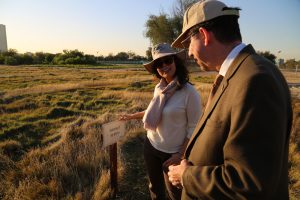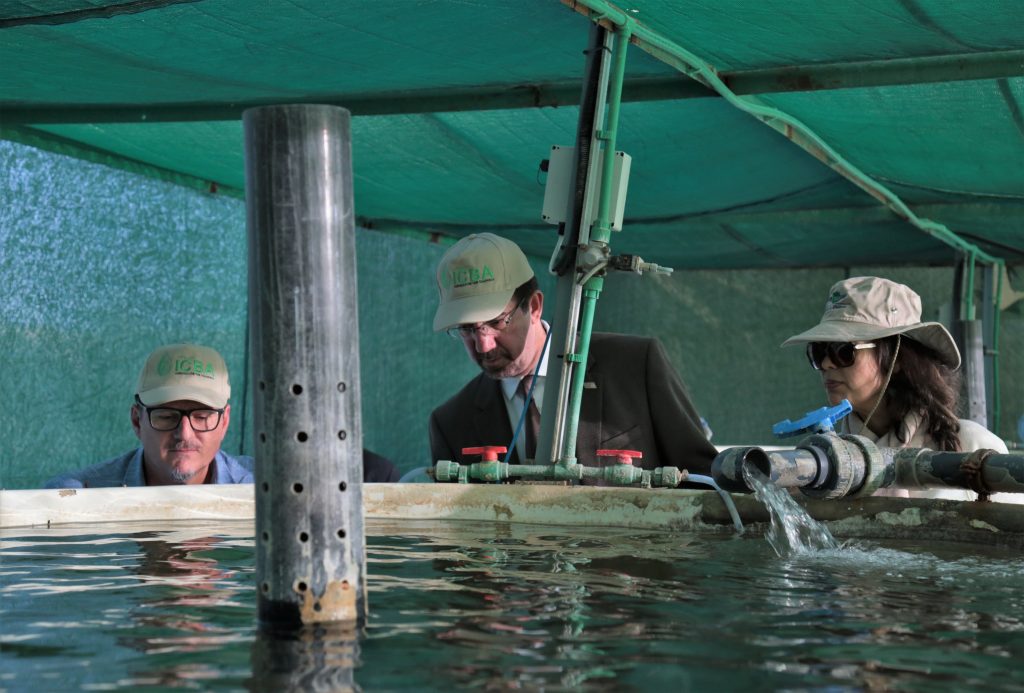São Paulo – A technical mission of Brazilian agriculture organizations is in the United Arab Emirates until Tuesday (21). The mission of the Ministry of Agriculture, Livestock and Supply (MAPA) seeks to strengthening the bilateral cooperation relations and breaking into new markets. Participating in the visit is an entourage of the Brazilian Agricultural Research Corporation (Embrapa).
Besides Embrapa president Celso Moretti, the mission to the Arab country also features the secretary of Innovation, Rural Development, and Irrigation at MAPA and secretary of the Embrapa Management Board (Consad), Fernando Camargo; heads of Embrapa Vegetables, Warley Nascimento, Embrapa Cassava and Tropical Fruits, Alberto Vilarinho, and Embrapa Goats and Sheep, Marco Aurélio Bomfim; as well as representations of the Brazilian Trade and Investment Promotion Agency (Apex-Brasil).
In addition to a meeting with the UAE minister for Future Food Security, Mariam Almheiri, on the 19th, to discuss eventual strategic partnerships, the mission included visits to institutions of the government and research related to the use of conventional and unconventional water resources (such as saline water, treated water, industrial water, agricultural drainage, and seawater). Al Meheiri visited Embrapa Genetic Resources and Biotechnology in Brasília in 2019.
The entourage also visited the International Center for Biosaline Agriculture (ICBA) on the 18th (pictured above). The center researches how to improve productivity and sustainability in marginal and saline areas. The Brazilians had a tour around the facilities in Dubai and discussed collaborations between both organizations, the Arab center reported.

The Brazilians expect that their experiences can be adapted to the reality of the Caatinga biome. The Arabs work on seawater and subsoil water desalination. Brazil’s contribution would come from Embrapa Semi-Arid and Embrapa Environment, both of which develop studies with biosaline agriculture and cultures with saltbush, a plant used in animal feed that adapts well in arid and semi-arid regions.
Another scheduled visit is to the research center of Abu Dhabi Agriculture and Food Safety Authority (ADAFSA), charged with agriculture, food security, and biosecurity.
The delegation has also visited companies such as Camelicious Farm, a camel farm; Fish Farm, of pisciculture; Agthia Group, which produces food and beverage; Al Dhahra Holding Company, an international agribusiness company that specializes in producing and selling animal feeding and foodstuffs for the supply chain; Elite Agro, a foodstuff cultivation and trade brand; and Jenan Investment Company.
The tour cover opportunities for different units of the corporations, such as Embrapa Food Agroindustry, Embrapa Tropical Agroindustry, and Embrapa Fisheries and Aquaculture.
Office
Embrapa reported still its intention to establish an office in the UAE. But this idea has yet to go through the ministries of Agriculture and Foreign Relations. If implemented, the goal is “investing more on strategies to monetize our assets starting on 2020,” Embrapa president was quoted as saying in a press release, pointing out the corporation’s internationalization.
The possibilities include signing contracts for Brazilian royalty-protected cultivars to be available in the Arab country. The opening of investment in Brazil in bioeconomy was also mentioned by Moretti as a potential partnership. “We can present our technology developed from nitrogen-fixing bacteria,” he stressed.
Embrapa reported that an agreement to promote projects outside Brazil is expected to be signed with Apex still in the first quarter of the year. The cooperation aims at continuously funding future missions abroad as part of a strategic plan to strengthening the internationalization process.
Translated by Guilherme Miranda




